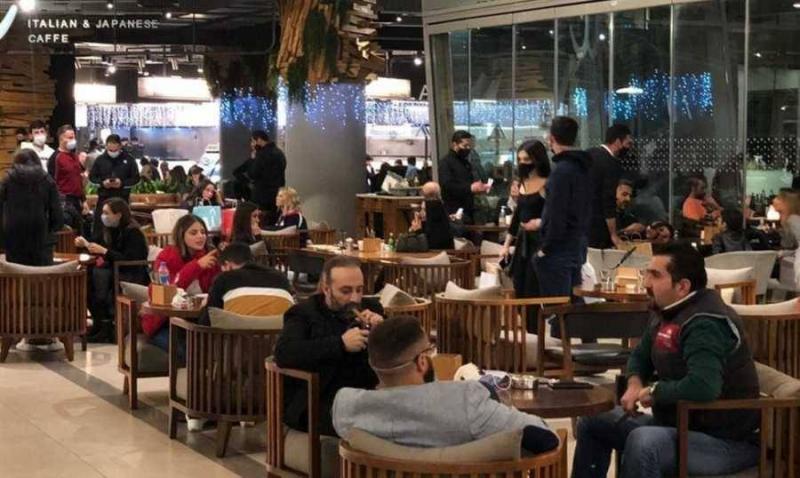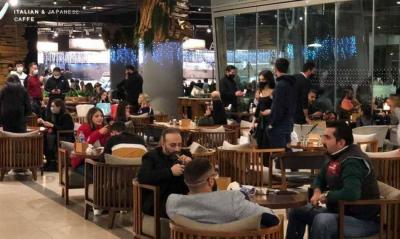After the holiday fervor, discussions turned to statistics and the occupancy rates in hotels and restaurants that welcomed tourists and expatriates from various parts of the world. Was the holiday season "blissful"? Did the "#WinterHoliday" campaign truly break through the wall of the economic crisis and stimulate the financial cycle in the country? The Minister of Tourism in the caretaker government, Walid Nassar, pointed out in a televised interview that "the rate of arrivals in Lebanon in 2022 reached 69% compared to the previous year," noting that "in the last month of 2022, 700,000 tourists were recorded, and the '#WinterHoliday' campaign contributed to an increase in number beyond half a million."
However, statistics suggest otherwise. Researcher Mohammad Shamseddine from the International Information Center confirmed to "Al-Markaziya" that the total number of people who entered Lebanon between December 8 and December 31, 2022, was actually 320,000. A simple calculation, taking the average daily arrivals of about 6,000, indicates that around 80,000 tourists entered the country at most. Shamseddine believes that if we consider the average spending per person to be around $1,000, we can discuss an influx of approximately $70 to $80 million in fresh dollars into the country, especially as most arrivals were Lebanese, suggesting that the spending was not substantial.
Regarding the idea that full restaurants and cafes are a sign of many tourists flocking to Lebanon, Shamseddine mentioned that the largest restaurants have a capacity that does not exceed 1,000 people, and it is easy for them to fill up considering about 25% of the Lebanese population who also went out during the holidays, approximately one million Lebanese, many of whom are wealthy or receive funds from abroad, or earn their salaries in fresh dollars.
As for the impact of this movement on the dollar exchange rate, Shamseddine emphasized that fluctuations in the dollar's value are not related to the economy, proving that the arrival of tourists did not halt the rise of the dollar either in summer or during the holiday season.
The reality reflected by Shamseddine is echoed by Pierre Achkar, head of the Hotel Owners Association in Lebanon, who indicated that "the situation in Beirut was better than outside it." He points out that "we expected a promising movement outside Beirut, especially in ski areas that usually attract tourists at this time of year, but the activity there was limited to two or three days before and after New Year's, and did not last for a week or 10 days as anticipated."
In Beirut, the situation was better, with movement lasting about 10 days, Achkar explained to "Al-Markaziya," yet it still did not meet expectations. Achkar believes our situation will remain poor as long as the Gulf countries do not allow their citizens to travel to Lebanon and as long as the West continues to warn against traveling to Lebanon.
On the internal front, Achkar noted that the constant power outages have "burned" any gains made as the funds received by the sector are spent on securing diesel for generators and providing water and other lost services.




